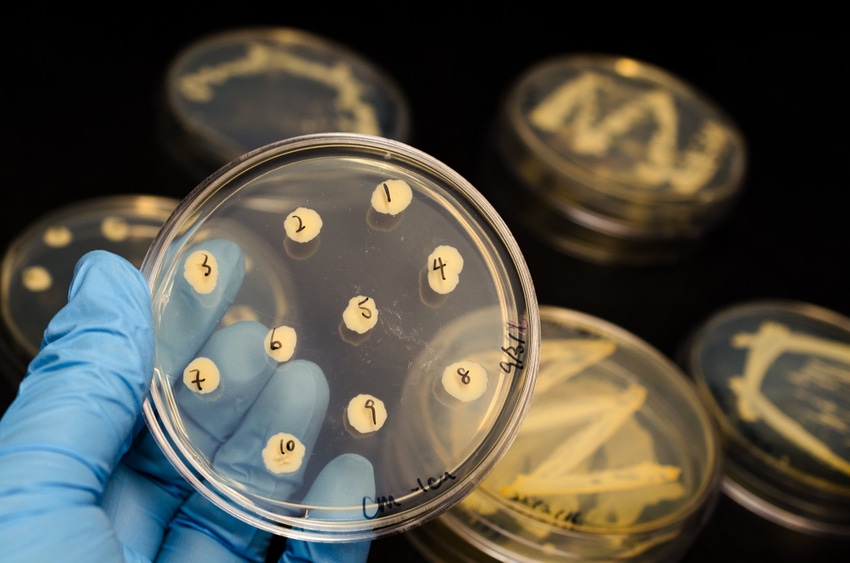Probe could elucidate farm animal, drug-resistant bacteria connection
Study highlights need for more robust data and state-of-the-art genome analysis to shed light on how drug-resistant bacteria spread.
May 31, 2018

Growing threats to public health could be addressed by cutting-edge research that may reveal whether or not farm animals contribute to the spread of drug-resistant bacteria, according to an announcement from the University of Edinburgh in Scotland.
Scientists are calling for new research combining genome analysis with studies that map the spread of infections to reveal if cows, pigs and chickens might play a role in helping drug-resistant bacteria thrive, the announcement said.
Determining if livestock are a source of such bacteria could inform measures to combat the rise of drug-resistant infections with no effective treatments, researchers said.
According to the scientists, previous research suggests that resistant Escherichia coli bacteria — recently classified as a major health threat by the World Health Organization — can be passed directly to humans by livestock.
However, limitations in these types of studies mean that the role of farm animals in the rise and spread of drug-resistant bacteria remains poorly understood, the researchers said.
A team led by scientists at the University of Edinburgh carried out a systematic review of current evidence examining the transfer of resistant E. coli between farm animals and people.
Their findings highlight a need for more robust data and state-of-the-art genome analysis to shed light on how drug-resistant bacteria arise and spread in human and animal populations.
Dishon Muloi, a doctoral student in the University of Edinburgh's Centre for Population Health Sciences who led the study, said, "Our study suggests that the current evidence regarding transmission of drug resistance between food animals and humans is limited. Combining state-of-the-art genomic data analysis with epidemiological evidence would help us to better understand the direction and frequency of transmission between the two populations."
Dr. Bram van Bunnik of the University of Edinburgh's Centre for Population Health Sciences said, "The role of farm animals in the emergence and spread of drug-resistant bacteria to humans is poorly understood and controversial. Similarity or identity of drug-resistant bacteria in the two populations does not, by itself, provide information on the direction of transfer. We need to integrate novel methods on whole-genome analysis and epidemiological approaches to better understand the direction and frequency of transmission between these populations to combat antibiotic resistance."
The study, published in the journal Foodborne Pathogens & Disease, involved researchers at the universities of Liverpool and Oxford in the U.K. and the International Livestock Research Institute in Nairobi, Kenya.
You May Also Like



